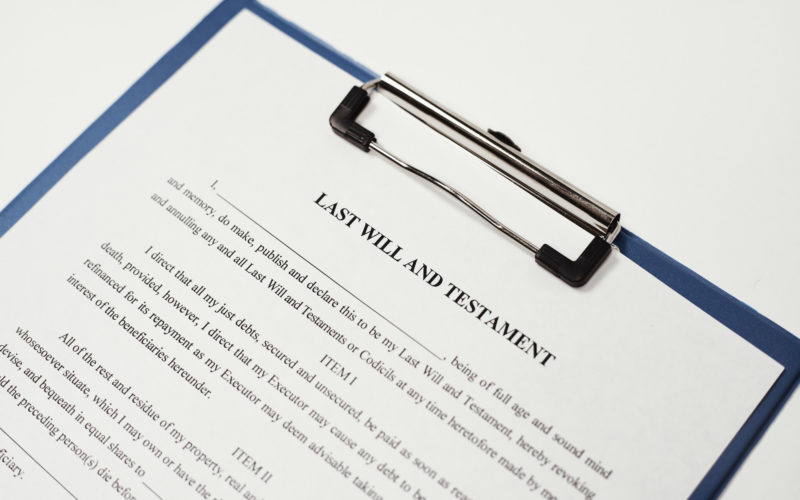Probate is a crucial step in settling a deceased person’s estate. It involves validating their will and distributing assets according to their wishes or, if no will exists, according to Australian law. For many, the legalities of probate can feel overwhelming, especially during an emotionally challenging time. Engaging a lawyer can simplify the process, ensuring that everything is handled correctly and efficiently.
When it comes to working with a probate lawyer, their expertise can provide invaluable support in navigating the often-complicated probate process. By understanding their role and the legal requirements involved, you’ll be better equipped to manage the estate and avoid unnecessary delays or conflicts. In this article, we’ll break down key aspects of probate law in Australia, the benefits of hiring a lawyer, and essential tips to help you navigate this legal journey effectively.
What Is Probate?
Probate is a legal procedure confirming the validity of a will. In Australia, it is usually required when the deceased owned significant assets, such as real estate, shares, or substantial bank account balances. The Supreme Court in each state and territory handles probate applications. Once granted, a probate order gives the executor legal authority to manage and distribute the deceased’s assets.
If there is no will, the process becomes more complex, and the court may appoint an administrator to handle the estate. This is called “letters of administration” and follows similar steps as probate, but the assets are distributed according to intestacy laws.
When Is Probate Necessary?
The need for probate depends on the type and value of the deceased’s assets. In some cases, banks and other financial institutions may release funds without requiring probate if the amount is small. However, if the estate includes real property or high-value investments, probate is generally required.
Different states in Australia have varying thresholds and requirements. For example:
- Victoria: Probate may not be needed if assets are under $50,000.
- New South Wales: Probate is typically required for estates valued over $15,000.
- Queensland: Probate is usually unnecessary for small estates but required for assets like real estate.
Understanding these differences is crucial, and seeking legal advice ensures compliance with state-specific regulations.
The Role of a Probate Lawyer
A probate lawyer specializes in guiding clients through the estate administration process. They provide expert advice, handle legal documentation, and represent your interests in court if necessary. Here’s how they assist:
1. Application Preparation
A lawyer will gather the required documents, such as the will, death certificate, and asset details, and prepare the probate application. This reduces the risk of errors that could delay the process.
2. Asset Valuation and Distribution
Probate lawyers help identify and value the deceased’s assets. They ensure the distribution aligns with the will or intestacy laws, avoiding disputes among beneficiaries.
3. Resolving Disputes
Conflicts over wills are not uncommon. A lawyer mediates disputes, protecting the estate from costly litigation.
4. Tax and Debts
Lawyers ensure that debts, taxes, and liabilities are settled before distributing the estate. This prevents legal complications later.
Key Steps in the Probate Process
1. Locating the Will
The first step is to locate the deceased’s will, if one exists. It provides instructions for asset distribution and appoints an executor to manage the estate.
2. Filing the Application
The executor, with the help of a lawyer, files for probate in the Supreme Court of the state or territory. This involves submitting the will, death certificate, and an inventory of assets and liabilities.
3. Grant of Probate
Once the court is satisfied with the application, it issues a grant of probate. This authorizes the executor to access and manage the estate.
4. Asset Collection and Debt Payment
The executor collects the deceased’s assets, settles any outstanding debts, and pays applicable taxes, such as capital gains or income tax.
5. Final Distribution
The remaining assets are distributed to beneficiaries according to the will or intestacy laws.
Common Challenges in Probate
1. Intestate Estates
When someone dies without a will, intestacy laws determine asset distribution. This can lead to confusion and disputes, particularly in blended families or complex estates.
2. Delayed Documentation
Missing or incorrect documentation can delay probate. For example, disputes over the validity of a will may lead to lengthy legal battles.
3. Executor Responsibilities
Acting as an executor involves significant responsibilities. Mismanagement, even if unintentional, can result in legal action from beneficiaries.
4. Family Disputes
Conflicts among family members are common during probate. Clear communication and legal guidance can help prevent or resolve disputes.
Tips for Navigating Probate Successfully
1. Seek Legal Advice Early
Engaging a probate lawyer early ensures you understand your responsibilities and legal obligations.
2. Keep Detailed Records
Maintain accurate records of all estate-related transactions to protect yourself as an executor and provide transparency to beneficiaries.
3. Communicate with Beneficiaries
Open and honest communication minimizes misunderstandings and potential conflicts.
4. Understand State Laws
Each state has its own probate laws. Familiarize yourself with the specific requirements of the jurisdiction where the deceased lived.
Cost of Hiring a Probate Lawyer in Australia
Probate lawyers typically charge in one of two ways: a flat fee or an hourly rate. The total cost depends on the complexity of the estate and the lawyer’s experience. While legal fees may seem high, the benefits of professional guidance often outweigh the risks of handling probate alone, particularly for larger or more complex estates.
When to Handle Probate Without a Lawyer
In some cases, you may consider managing probate without legal assistance. This is more feasible for small, straightforward estates. However, be prepared to invest time in understanding the legal requirements and handling the administrative tasks yourself. Mistakes can be costly and may result in delays.
Final Thoughts
The probate process in Australia can be complex, but with the right support, it becomes manageable. Working with a probate lawyer ensures that legal requirements are met, disputes are resolved efficiently, and assets are distributed according to the deceased’s wishes. Whether you’re dealing with a simple estate or a more intricate one, professional guidance can save you time, reduce stress, and provide clarity during a challenging period.
By understanding the basics of probate and seeking legal advice when needed, you can navigate this process confidently and honor the wishes of your loved one.












